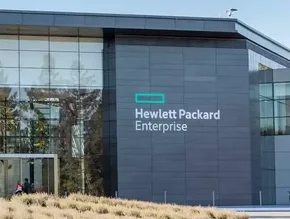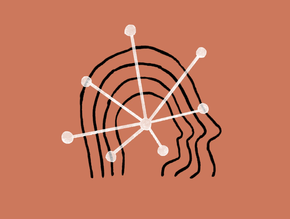Hexagon on AI, the metaverse and the impact on manufacturing

Tell me about Hexagon, your role, and your responsibilities
Hexagon is an international leader in digital reality solutions, combining software, sensor, and autonomous technologies (including robots), working within the advanced manufacturing space. Our technologies are involved in the production of 95% of all cars and 90% of all aircraft globally, to give you an idea of our reach, and we work with everyone from nimble manufacturing start-ups to the world’s leading tech powerhouses.
On a day-to-day basis, my role as Chief Product Officer and Chief Technology Officer for Hexagon’s Manufacturing Intelligence division is to ensure that Hexagon is making the best decisions for our customers in innovating product roadmaps and technologies and providing solutions at the forefront of modern manufacturing. Through our technology, manufacturers globally are enhancing their processes, streamlining traditional manufacturing operations, and improving product and manufacturing quality daily.
How do you think AI will be a key pillar in the metaverse?
Without AI’s autonomous interpretation of complex datasets, the magnitude of processing required to form the foundation of a metaverse would render it impossible. The optimisation of computing efficiencies through AI enables the data-driven insights that make this virtual world both possible and useful; an immersive experience that will be critical for manufacturers.
But rapid data interpretation is just the start. AI will augment user experience by tailoring advice and support to individuals accessing the metaverse, based on the user’s previous experiences and desired outcomes. It will also automate processes that are currently manual, reducing the burden on the individual.
How will this impact the manufacturing industry?
AI’s ability to process large volumes of data and spot patterns is highly beneficial to industries that generate large volumes of it. This is certainly true of my industry – manufacturing. We are already using AI on a daily basis to solve more complex problems for our customers across design, production and quality assurance! Our customers produce reams of data throughout production, and receive it in every form possible – simulation data, machine operating data, quality data… These datasets are useful as isolated observations and help inform their respective processes, but are extremely challenging – if not impossible – to connect into holistic insights across the product lifecycle.
It's why my industry pioneered the Digital Twin concept. A Digital Twin combines the virtual simulation with real-life learnings from the product’s manufacture and operation, helping engineers optimise and improve their designs. As the convergence of the physical and digital realms, I see the metaverse as an evolution of this.
An advanced metaverse will enable diverse teams of experts in different fields to design more complex machines more effectively and efficiently. Small iterations in a design, like changes in the materials or structure, are often decided by engineers operating within their own specialisms, without oversight of how that tweak may affect other aspects of the product. A metaverse would enable the iterative process of engineering to be streamlined, taking into account multiple changes simultaneously.
Why is data collection and insight still as important as ever?
The more accurate and specific data provided to an AI solution, the more valid its outputs, and this in turn will improve efficiencies for companies down the line. It is unlikely that we will ever reach a point where no input is required, so data collection will remain eternally important. In my industry’s case, it can literally be the difference between life and death. A car designed using inaccurate or insufficient data would be unsafe, no matter how advanced the programme was that designed it.
Moreover, more advanced AI, created through greater collection and understanding of how to wield data, will help circumvent barriers to digitalisation. A traditionally conservative industry, the manufacturing workforce is becoming increasingly comfortable working with tools like AI, the metaverse and Digital Twins, but the skills gap is still a challenge to truly harnessing their benefits. Efforts to democratise access to these technologies are key at Hexagon. For example, consolidating quality KPIs and using AI to analyse them to their full potential through all steps of production will enable manufacturers to build connected workflows with unprecedented levels of insight and traceability even if they lack specialist knowledge in some areas.
What’s next for Hexagon?
It would be impossible to list all the ways we are working to further the manufacturing industry’s AI capabilities and opportunities here, so here are three honourable mentions.
We are using AI to help solve more complex problems for our customers more efficiently, for example using reduced order modelling to design more efficient wind turbine transmissions and optimise their deployment offshore. Simulation processes that could take days are now interactive and real-time.
This year, we also launched our Sixth Sense open innovation platform that helps manufacturing start-ups from around the world scale up. It was wildly successful and oversubscribed, attracting start-ups that are developing new and exciting AI innovations. Examples include a “no-code” visual detection software that can be trained by non-experts to recognise complex patterns, and advanced factory floor simulation that can be developed using a single 3D scan. We’re working to grow and refine a selection of these solutions for the market.
We have strong ties with the automotive industry and are working to support the global transition to electric cars. Our recent research found that lightweighting cars is a key challenges, with 46% reporting they are increasing investment in new materials. As such, we are helping them find the optimal selection of materials and manufacturing methods to reduce waste and overengineering. Material suppliers and aircraft manufacturers are taking this further, using deep learning to identify new materials that could improve cost and sustainability but have never been made or tested, saving millions of pounds and years of work.
I am passionate about wielding these and other AI-enhanced innovations to help equip our customers with the resources to produce ever better, safer, and greener products.






